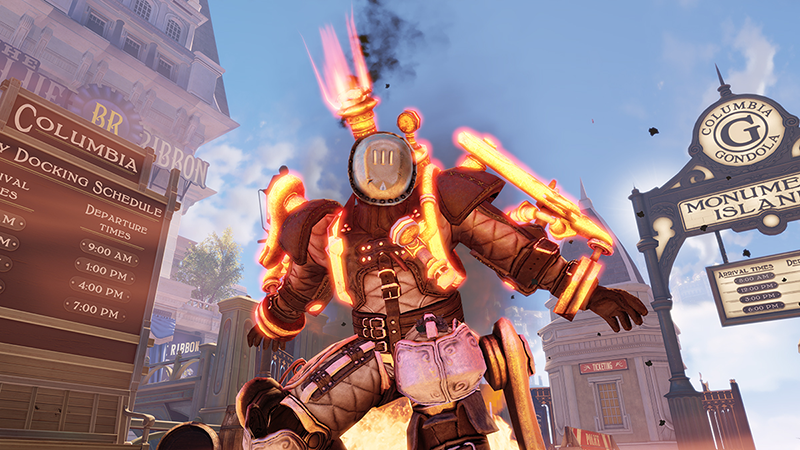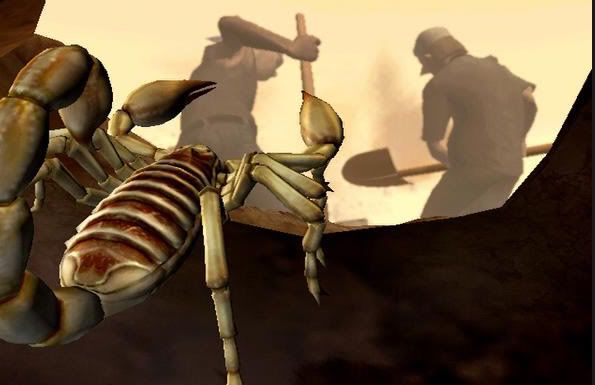 |
| Booker's very first kill is an astonishingly brutal one. Credit: Gameranx |
Well, I recently finished Bioshock Infinite, probably one of the best games I've ever played. I enjoyed the game for many reasons, among them its commentary on violence and brutality, particularly in video games.
In the first two Bioshocks, every enemy the player faces (not the Little Sisters or Bioshock 2's still-sane inhabitants) is either a crazy, tortured drug addict, or some poor sucker bonded to a diving suit and reduced to subhuman intelligence. The weapons given to the player may inflict much pain and suffering, but the actual act of killing these enemies is quite justifiable - think of it as particularly merciless euthanization.Bioshock Infinite also provides some put-them-out-of-their-misery enemies: the Firemen and Handymen seem to be in a great deal of pain at every passing moment. However, the vast majority of enemies are just schmucks from the Columbian army and police force, or ordinary citizens from the Vox Populi.
 |
| Living in a Fireman suit must be hell - Booker's probably doing these guys a favour, at least. Credit: Bioshock Wiki |
Elizabeth at first questions Booker's actions. After an early melee with some Columbian police, Elizabeth is horrified at what Booker's done, having killed so many people. To the player, its a moment of complete surprise; they've likely been killing schmucks and not thinking twice about it. It's like the moment when your mother first realizes all the crap you've been doing in your M-rated game. Then, it's like your Mom sits down and plays that M-rated game when Elizabeth starts to procure turrets, weapons, and other offensive tools for Booker to use, (spoiler alert!) culminating in her (justified) murder of Daisy Fitzroy.
 |
| Elizabeth gets damn scary near the end of the game. Credit: Video Lithium |
Of course, Elizabeth finds a method of redemption - one brutally efficient in and of itself. I'll talk a bit more about the ending in a later post, but it adds interesting fodder to a thought experiment someone else has no doubt conceived, but which has also occurred to me: if you torture someone and then erase their memories of it, were they ever tortured? If you cause death and destruction to the world, and then use dimension-bending powers to erase your actions from history, did they ever occur?
A reviewer once derided Infinite for attempting to criticize video game violence using video game violence, which is true enough, but the fact is, Infinite has some interesting things to say.

